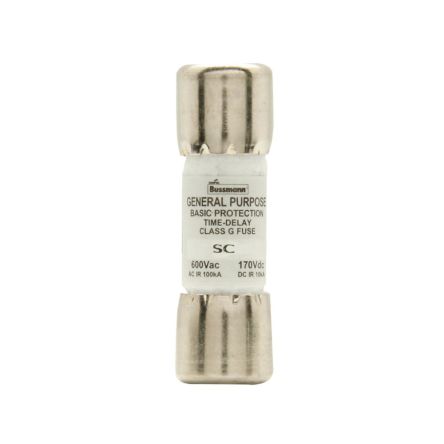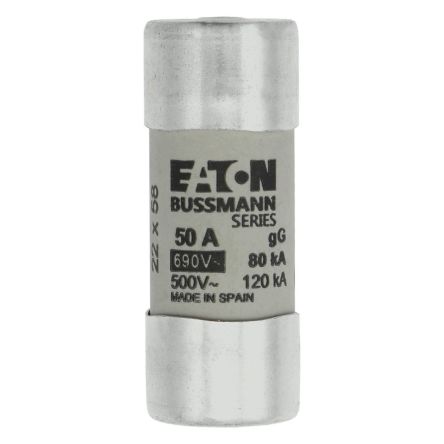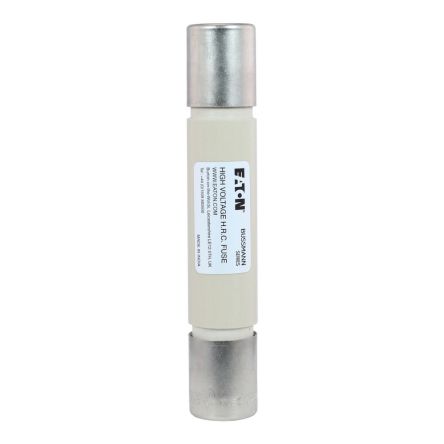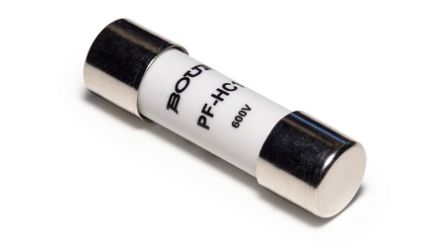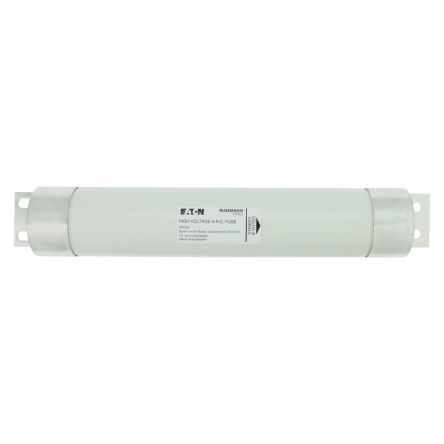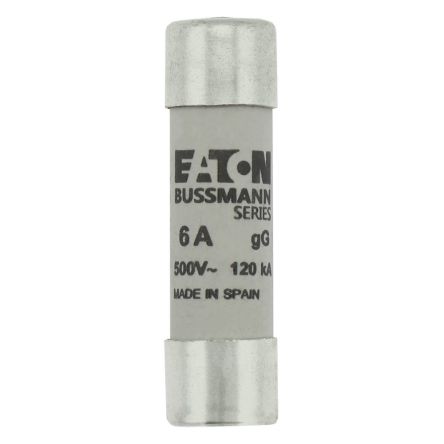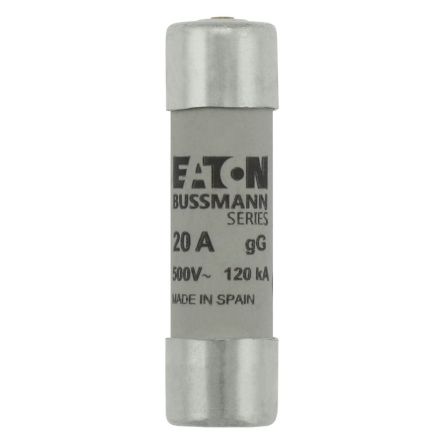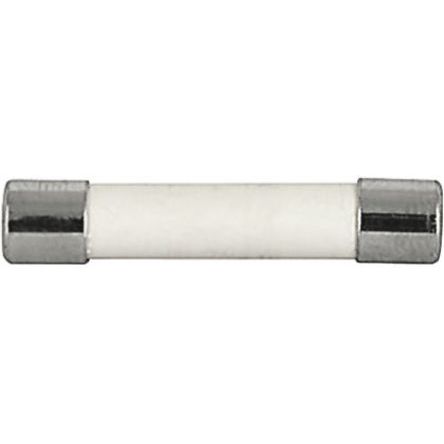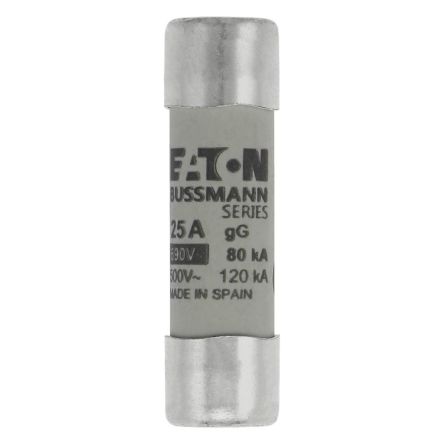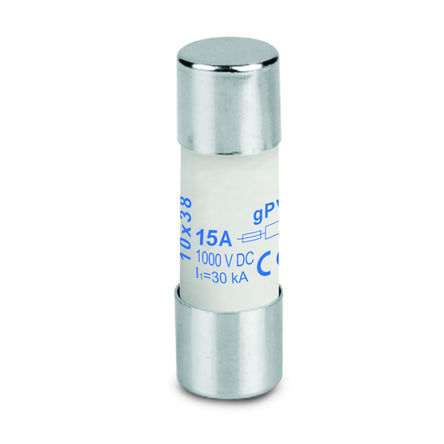- Automation & Control Gear
- Cables & Wires
- Enclosures & Server Racks
- Fuses & Circuit Breakers
- HVAC, Fans & Thermal Management
- Lighting
- Relays & Signal Conditioning
- Switches
- Batteries & Chargers
- Connectors
- Displays & Optoelectronics
- ESD Control, Cleanroom & PCB Prototyping
- Passive Components
- Power Supplies & Transformers
- Raspberry Pi, Arduino, ROCK, STEM Education & Development Tools
- Semiconductors
Cartridge Fuses
Fuses are devices that provide overcurrent protection to electrical circuits. While both fuses and circuit breakers protect electrical circuits, they operate differently. Fuses such as cartridge fuses are single-use devices that must be replaced once they blow, whereas circuit breakers can be reset and reused multiple times. Circuit breakers such as an RCBO are more convenient and often used in residential and commercial buildings, but fuses remain popular in certain applications due to their simplicity and reliability.
Among fuses, cartridge fuses are low-cost electrical safety devices used to protect the overload of electrical circuits and appliances. They are cylindrical and have a contact point at each end. Cartridge fuses are typically constructed from ceramic, glass, or porcelain.
Moreover, cartridge fuses come in various sizes to accommodate different electrical loads and applications. The fuse size determines its current rating and voltage capacity, ensuring it can effectively protect the specific circuit it is designed for.
How Do Cartridge Fuses Work?
Cartridge fuses contain a piece of wire that melts when too much current flows through the circuit. When the wire melts, it breaks the circuit, preventing damage to the connected devices and contactors. This is often referred to as burning out or blowing out. Put simply, when a fuse blows, the circuit is broken. Once a fuse has blown, it will need a replacement to complete the circuit and allow the current to flow. Ensuring proper fuse ratings and optimising electrical wiring with heat shrink tubing can significantly enhance the safety and efficiency of your electrical systems.
Why Use Cartridge Fuses?
Cartridge fuses are a relatively cheap way of protecting electrical equipment from short circuits and overcurrents. They are incredibly safe as they do not produce flames, arcs, or gas when they burn out and break the circuit.
Types of Fuse Markings and Speed Codes
Cylindrical cartridge fuses are used in a range of industrial, commercial, and domestic applications. Selecting the correct fuse speed is essential for the protection of your device. Here are some of the most common markings you will find on a cartridge fuse.
- FF = Very Fast Acting (Flink Flink)
- F = Fast Acting (Flink)
- M = Medium Acting (Mitteltrage)
- T = Slow Acting (Trage)
- TT = Very Slow Acting (Trage Trage)
What Current Rating Should You Choose?
Cartridge fuses are available in a range of standard amperages. When choosing the correct fuse for your application, you should select a fuse with a nominally higher current rating than the device that it is being used in. This means that if there is a slight, harmless power increase, the fuse will not blow.
Cartridge fuses come in various current ratings, typically ranging from fractions of an ampere to several hundred amperes. Here’s a breakdown of common cartridge fuse ratings:
- 20 Amp Cartridge Fuse: Ideal for protecting household appliances, small motors, and lighting circuits.
- 30 Amp Cartridge Fuse: Commonly used in larger household appliances and small industrial equipment.
- 40 Amp Cartridge Fuse: Suitable for moderate industrial applications and larger residential systems.
- 50 Amp Cartridge Fuse: Often used in heavy-duty industrial equipment, large HVAC systems, and significant residential power needs.
- 60 Amp Cartridge Fuse: Typically found in industrial machinery, large electrical panels, and commercial HVAC systems.
- 80 Amp Cartridge Fuse: Used for very high-power applications, such as industrial plants, large machinery, and main electrical service panels.
In addition to the current rating, consider the breaking capacity of the cartridge fuse. Breaking capacity is the maximum current a fuse can safely interrupt without exploding or rupturing. The breaking capacity should always exceed the fault current of your circuit to ensure safety.
Industrial Applications of Cartridge Fuses
Cartridge fuses are used in different types of industrial settings for protecting heavy machinery and electrical equipment from overcurrent conditions.
For example, in manufacturing plants, cartridge fuses safeguard motors, transformers, and control circuits, preventing costly downtime and equipment damage.
Additionally, cartridge fuses are used in HVAC systems to protect compressors and fans, and in industrial automation to secure programmable logic controllers (PLCs) and other control devices.
Buying Cartridge Fuses: Ordering and Delivery Information for Australia
RS is a trusted supplier and distributor of cartridge fuses, offering a comprehensive range from industry-leading brands such as Eaton, Littelfuse, Mersen, and RS PRO.
We also ensure reliable delivery, offering next working day service if ordered before 5 pm AEST Monday to Friday or a specific day within the next 12 months.
For detailed information regarding ordering and delivery, please call our customer service.
Popular Searches
Related links
- RS PRO 4A T Glass Cartridge Fuse, 5 x 20mm
- RS PRO 1A F Glass Cartridge Fuse, 5 x 20mm
- RS PRO 40A Ceramic Cartridge Fuse, 15 x 22mm
- RS PRO 5A T Glass Cartridge Fuse, 5 x 20mm
- RS PRO 2.5A T Glass Cartridge Fuse, 5 x 20mm
- Eaton 1A F Glass Cartridge Fuse, 5 x 20mm
- RS PRO 10A T Ceramic Cartridge Fuse, 5 x 20mm
- RS PRO 60A Ceramic Cartridge Fuse, 15 x 22mm
